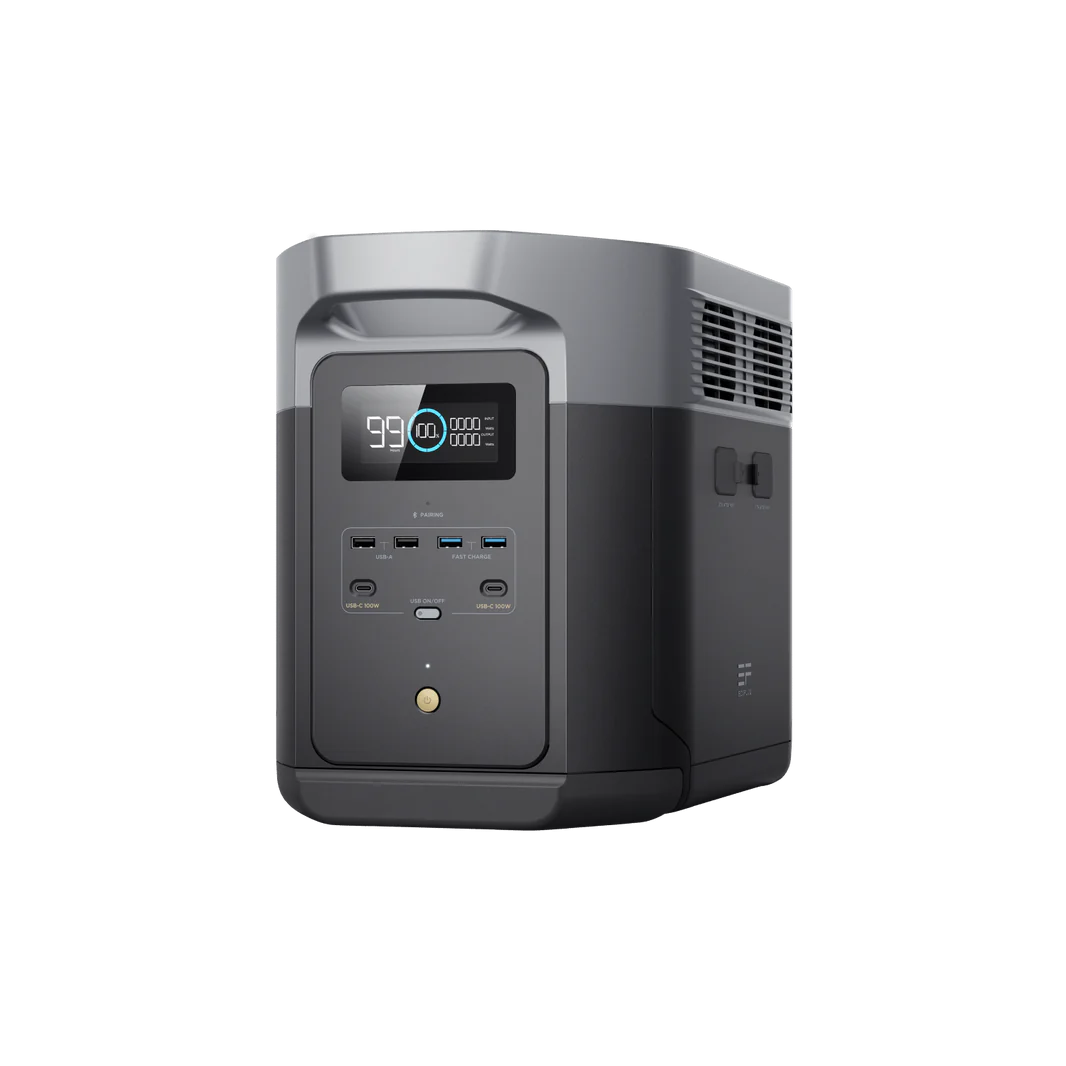In this video, City Prepping reviews the top solar generator options available in 2024, comparing their features, efficiency, and overall value to help consumers make informed decisions when purchasing one. The video includes an in-depth analysis of various models, emphasizing the most important factors to consider when buying a solar generator.
What is a Solar Generator?
Solar generators harvest energy from the sun through solar panels or from an AC source, storing it in batteries for later use. These devices provide an eco-friendly alternative to traditional generators, which use fossil fuels.
Important Factors Before Buying
- Battery Capacity: Measured in watt-hours (Wh), indicating how much power the generator can store. For example, a generator with 1000Wh capacity can power devices using 50Wh for 20 hours.
- Continuous Output and Surge Capacity: Continuous output refers to the maximum power the generator can provide steadily, while surge capacity handles short-term spikes in power demand.
- UPS/EPS Functionality: Uninterruptible Power Supply (UPS) and Emergency Power Supply (EPS) features ensure continuous power during outages, with quick switch-over times to maintain device operation.
- Battery Chemistry: Lithium-ion and lithium iron phosphate (LiFePO4) are the primary types, with LiFePO4 offering more charge cycles and better heat stability but at a higher weight.
- Expandability: Some generators allow for additional battery packs, increasing their overall capacity, which can be a crucial feature for future-proofing your investment.
- Charging Capabilities: The rate at which a generator can recharge from solar panels or AC sources is crucial. Faster charging times are preferable in emergency situations.
- Connectivity: Many modern generators offer Bluetooth or Wi-Fi connectivity, allowing remote monitoring and control via mobile apps.
- DIY vs. Pre-made Systems: While building your own solar generator system can be educational and potentially cost-saving, pre-made systems offer convenience, reliability, and often better integration of components.
- Cost Considerations: Prices vary significantly, typically between $750 and $11,000 per kilowatt-hour of capacity. It’s important to balance cost with performance and reliability.
- Top Brands: The video highlights reputable brands such as Anker, Bluetti, EcoFlow, and Jackery, providing test results and recommendations based on performance, efficiency, and user features.
How I Test These Units
The presenter explains the methodology used to test the solar generators:
- DC and AC Efficiency Tests: Measuring the efficiency of power conversion in different modes.
- Battery Capacity and Charge Cycles: Assessing how long the batteries last and how many charge cycles they can handle.
- Output Capabilities: Testing continuous and surge power outputs to ensure reliability under various loads.
- Connectivity and Control: Evaluating the ease of use and functionality of mobile apps for remote monitoring and control.
Detailed Reviews of Top Brands
Anker Units
- Models Reviewed: Solix C1000, F1500, F2600
- DC Efficiency: 89%, 80%, 82%
- AC Efficiency: 80%, 78%, 78%
- Battery Capacity: 1056Wh, 1536Wh, 2560Wh
- Solar Input: 600W, 600W, 1000W
- Key Features: Lithium iron phosphate batteries, app connectivity (Bluetooth and Wi-Fi), expandable capacity, solid 5-year warranty, EPS functionality.
Bluetti Units
- Models Reviewed: AC180, AC200P, AC240
- DC Efficiency: 82%, 82%, 79%
- AC Efficiency: 90%, 86%, 90%
- Battery Capacity: 1152Wh, 2400Wh, 1536Wh
- Solar Input: 500W, 1200W, 1200W
- Key Features: Grounding options, high AC output efficiency, expandable capacity, water resistance (AC240), app connectivity (Bluetooth and Wi-Fi).
EcoFlow Units
- Models Reviewed: Delta 2, Delta 2 Max
- DC Efficiency: 79%, 82%
- AC Efficiency: 78%, 81%
- Battery Capacity: 1024Wh, 2048Wh
- Solar Input: 500W, 1000W
- Key Features: App connectivity (Wi-Fi), adjustable AC charge input, durable design, compatibility with EcoFlow’s ecosystem (smart dual fuel generator, 800W alternator charger).
Jackery Units
- Models Reviewed: Jackery 1000 Plus, 1500 Pro, 2000 Pro
- DC Efficiency: 84%, 82%, 84%
- AC Efficiency: 81%, 81%, 91%
- Battery Capacity: 1264Wh, 1512Wh, 2160Wh
- Solar Input: 800W, 1200W, 1200W
- Key Features: Lithium iron phosphate batteries (1000 Plus), expandable capacity, app connectivity, efficient solar panels, compact and lightweight design.
Pekron Units
- Models Reviewed: E1500 LFP, E2000 LFP
- DC Efficiency: 83%, 80%
- AC Efficiency: 79%, 88%
- Battery Capacity: 1536Wh, 1920Wh
- Solar Input: 800W, 1300W
- Key Features: Affordable pricing, expandable capacity, improved efficiency, reliable performance.
Conclusion
Among the reviewed units, the EcoFlow Delta 2 Max stands out as the best solar generator for 2024 due to its exceptional combination of efficiency, expandability, and connectivity features. Its high DC and AC efficiency, along with a robust battery capacity of 2048Wh that can be expanded up to 6080Wh, makes it versatile for various power needs. Additionally, EcoFlow’s app connectivity and adjustable AC charge input provide excellent user control and convenience, making it a top choice for both emergency preparedness and everyday use.

